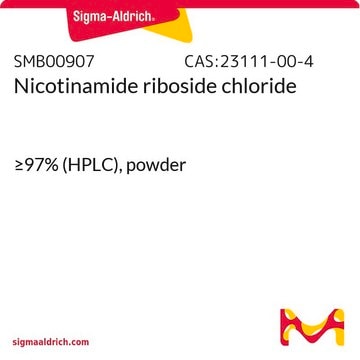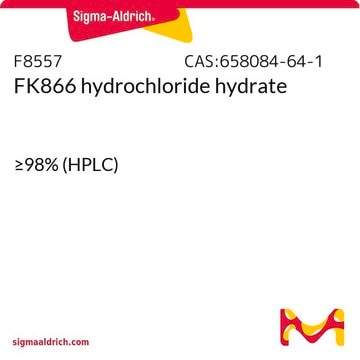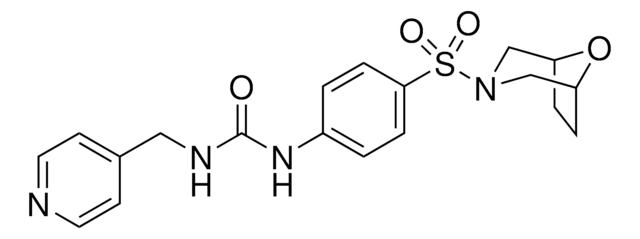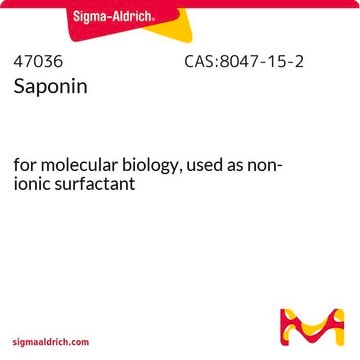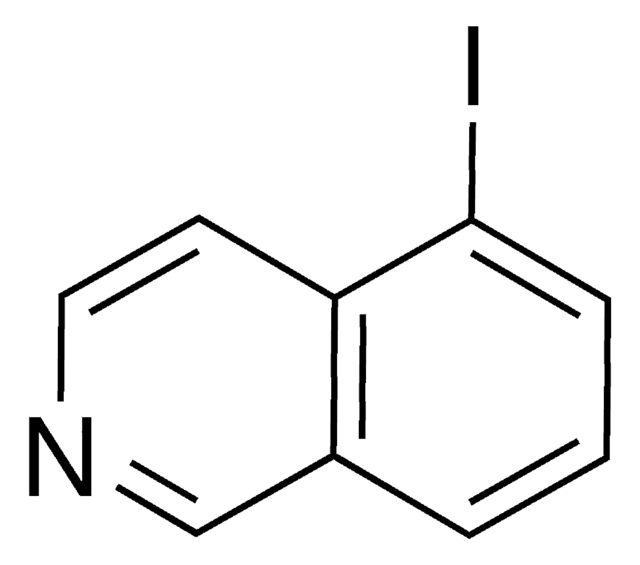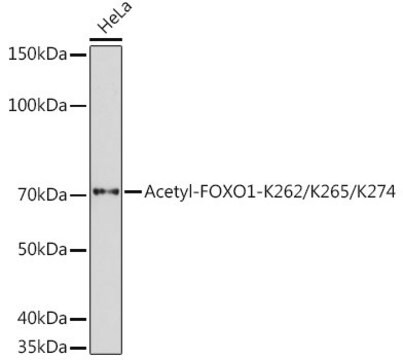481908
Nicotinamide Phosphoribosyltransferase Inhibitor, FK866
The Nicotinamide Phosphoribosyltransferase Inhibitor, FK866, also referenced under CAS 658084-64-1, controls the biological activity of Nicotinamide Phosphoribosyltransferase. This small molecule/inhibitor is primarily used for Neuroscience applications.
Synonym(s):
Nicotinamide Phosphoribosyltransferase Inhibitor, FK866, (E)-N-(4-(1-Benzoylpiperidin-4-yl)butyl)-3-(pyridin-3-yl)acrylamide, NAMPT Inhibitor, APO866, NAMPTase Inhibitor I, PBEF Inhibitor I, Visfatin Inhibitor I, NAPRT Inhibitor, APO866, NAMPTase Inhibitor I, PBEF Inhibitor I, Visfatin Inhibitor I, NAPRT Inhibitor, (E)-N-(4-(1-Benzoylpiperidin-4-yl)butyl)-3-(pyridin-3-yl)acrylamide, NAMPT Inhibitor
About This Item
Recommended Products
Quality Level
Assay
≥97% (HPLC)
form
liquid
manufacturer/tradename
Calbiochem®
storage condition
OK to freeze
protect from light
color
yellow
solubility
DMSO: 100 mg/mL
shipped in
ambient
storage temp.
2-8°C
InChI
1S/C24H29N3O2/c28-23(12-11-21-8-6-15-25-19-21)26-16-5-4-7-20-13-17-27(18-14-20)24(29)22-9-2-1-3-10-22/h1-3,6,8-12,15,19-20H,4-5,7,13-14,16-18H2,(H,26,28)/b12-11+
InChI key
KPBNHDGDUADAGP-VAWYXSNFSA-N
General description
Packaging
Warning
Physical form
Other Notes
Nakahata, Y., et al. 2009. Science324, 654.
Ramsey. K.M., et al. 2009. Science324, 651.
Billington, R.A., et al. 2008. J. Biol. Chem.283, 6367.
Hasmann, M. and Schemainda, I., 2003. Cancer Res.63, 7436.
Legal Information
Storage Class Code
11 - Combustible Solids
WGK
WGK 2
Flash Point(F)
Not applicable
Flash Point(C)
Not applicable
Certificates of Analysis (COA)
Search for Certificates of Analysis (COA) by entering the products Lot/Batch Number. Lot and Batch Numbers can be found on a product’s label following the words ‘Lot’ or ‘Batch’.
Already Own This Product?
Find documentation for the products that you have recently purchased in the Document Library.
Our team of scientists has experience in all areas of research including Life Science, Material Science, Chemical Synthesis, Chromatography, Analytical and many others.
Contact Technical Service